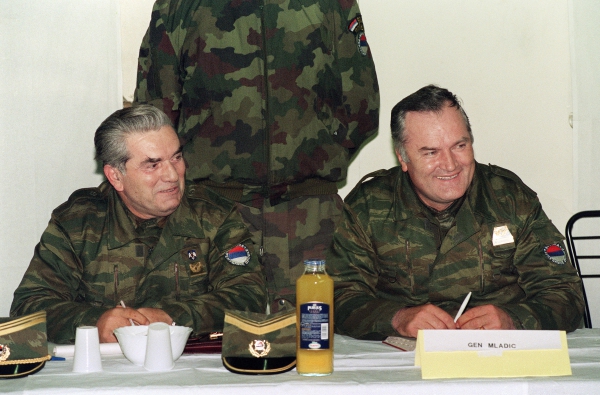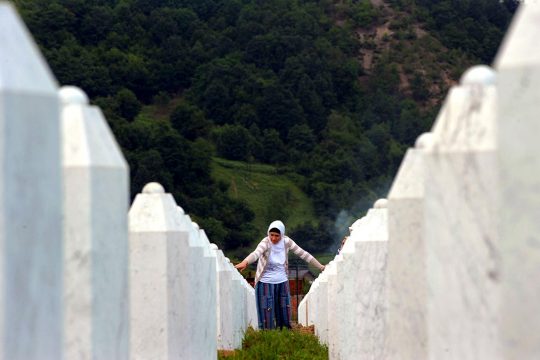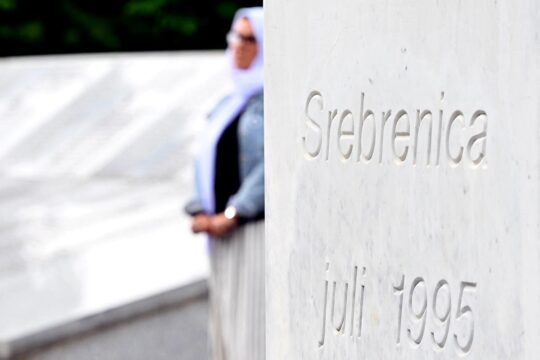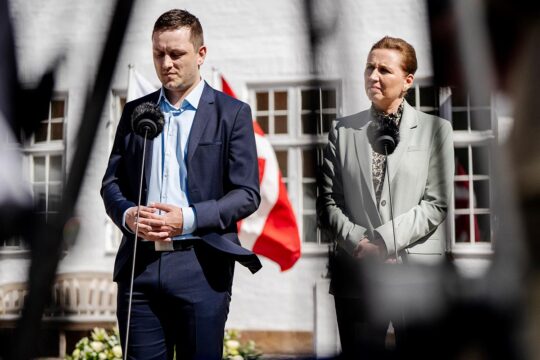The International Criminal Tribunal for the former Yugoslavia (ICTY) is preparing to hand down on November 22 its verdict on Bosnian Serb military leader Ratko Mladic. Given the ICTY’s previous convictions of his main associates including Radovan Karadzic, a guilty verdict is widely expected.
Whilst a guilty verdict is expected, it will be key to see what sentence the International Criminal Tribunal for the former Yugoslavia imposes. Mladic faces a possible life sentence, but in March 2016 the ICTY unexpectedly sentenced former Bosnian Serb political leader Radovan Karadzic to 40 years in jail. It was nevertheless Karadzic who, from his fief of Pale overlooking Sarajevo that was besieged by his forces throughout the war, implemented the ethnic cleansing in Bosnia-Herzegovina. But the judges considered his retirement from politics in 1996 after the Dayton peace accord to be a mitigating circumstance. They thus validated the written part of that peace deal but did not pronounce on the suspected unwritten part, i.e. impunity for Karadzic, who managed to escape the ICTY’s clutches for 13 years. However that may be, there is no such agreement for Mladic. In addition, Mladic has throughout the four years of his trial provoked the judges, going as far as to insult witnesses and get himself thrown out of the courtroom several times.
Genocide in Prijedor?
The charges against Ratko Mladic are similar to those on which Radovan Karadzic was convicted. He is accused of genocide, crimes against humanity and war crimes committed in Bosnia-Herzegovina between 1992 and 1995, during a war that left more than 100,000 people dead. Mladic has been tried for the massacre of 7,000 Bosnian Muslims in Srebrenica in July 1995; ethnic cleansing of towns and villages in Bosnia-Herzegovina, including camps in the Prijedor region; the 44-month siege of Sarajevo, whose inhabitants were shelled, shot at and starved; and the taking hostage of UN staff who were used as human shields to stop NATO intervention. Up to now the Tribunal judges have rejected the genocide charge in favour of crimes against humanity for crimes committed in Bosnia-Herzegovina, with the exception of Srebrenica. But in the Mladic case, the prosecution managed to get new evidence admitted at the last moment, the results of forensic exhumations carried out in the Prijedor region. In summer 2013, a repentant Serb soldier had revealed the site of mass graves to the commission on missing persons in Bosnia-Herzegovina. It managed to exhume 712 bodies from graves in Tomasica and Jakorina Kosa, on the site of an old mine. This evidence showed the violence of the ethnic cleansing in the region, which was taken by the Bosnian Serbs in spring 1992. We will know on November 22 if this evidence convinces the judges to convict Ratko Mladic for genocide. Shortly before leaving Sarajevo to attend the verdict in The Hague, the president of the Mothers of Srebrenica and Zepa told AFP she hopes he will be “found guilty of genocide, not only in Srebrenica but also in other towns.
Links with Belgrade
Another unknown is what responsibility the verdict will attribute to Serbia in Mladic’s crimes. Up to now, no Serbian leader has been convicted for crimes committed Bosnia. Slobodan Milosevic died in his prison cell before the end of his trial. In 2013, Momcilo Perisic, who was head of his army, was acquitted on appeal after initially being sentenced to 27 years in jail. A month later Jovica Stanisic, who was intelligence chief under Milosevic, was acquitted by the trial court. The appeals court then ordered a retrial. So, 25 years after the crimes were committed, he is on trial at the Mechanism for International Criminal Tribunals (MICT), a structure set up by the UN to handle the residual tasks of the ad hoc tribunals for former Yugoslavia and Rwanda: fugitives, requests for sentence reductions, final appeals and, in the case of Stanisic, a complete retrial. The verdict on Ratko Mladic will thus also show how the judges interpret the links between the Bosnian Serb military leader and leaders in Belgrade.
Mladic refuses to face the verdict
When he was arrested in Serbia on May 26, 2011, Ratko Mladic was sick. During his 16 years on the run he had had two strokes. The long hunt for him had lost him his support within the army, and it was with a cousin that he finally found refuge. According to several Tribunal investigators, it was the trail of medicines that finally led to his capture. In a new provocation a few months after his arrival at the Tribunal, the accused – who had recovered – thanked the judges for saving his life. During the more than four years of his trial, the Tribunal scheduled hearings to take account of his fragile health. But since the spring, his lawyers have been denouncing his treatment in prison and have asked for several specialists. Ratko Mladic has asked to be treated in Russia or Serbia, which the judges refused. Now his lawyers are insisting that the Tribunal should postpone the date of the verdict, arguing that Mladic is not in a fit state to face it.






